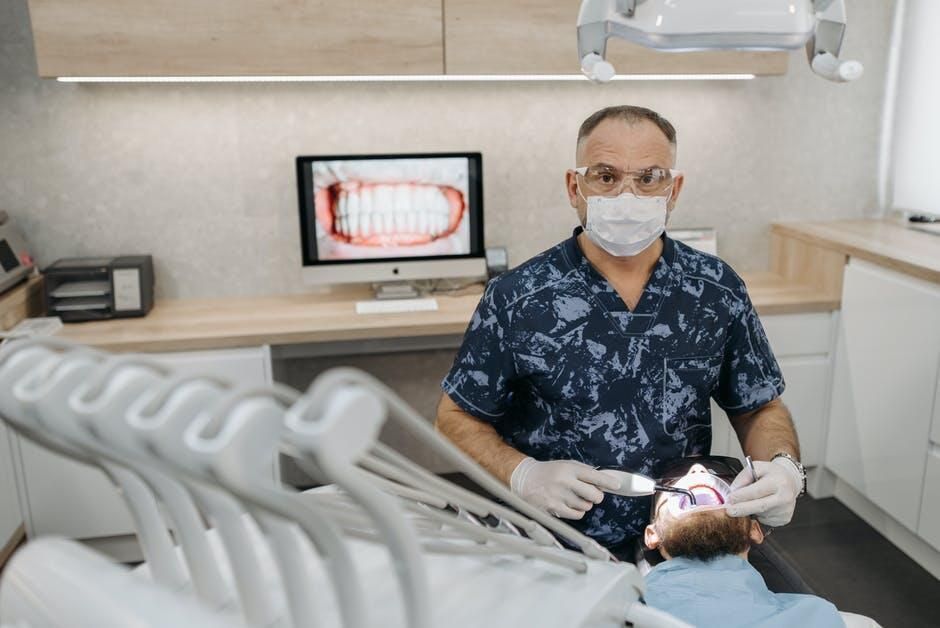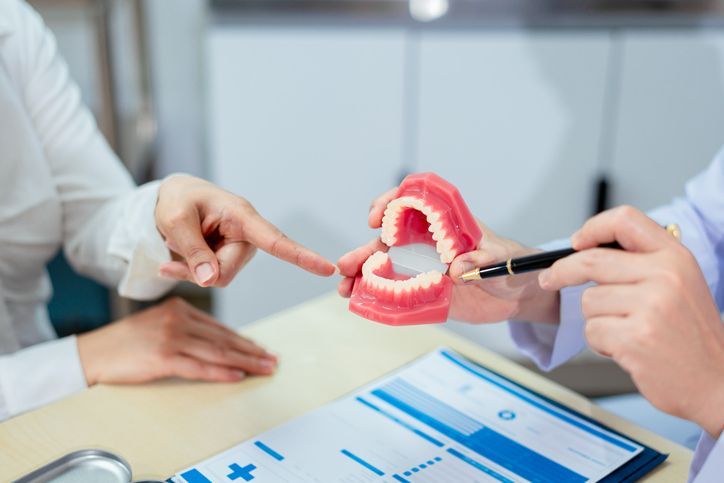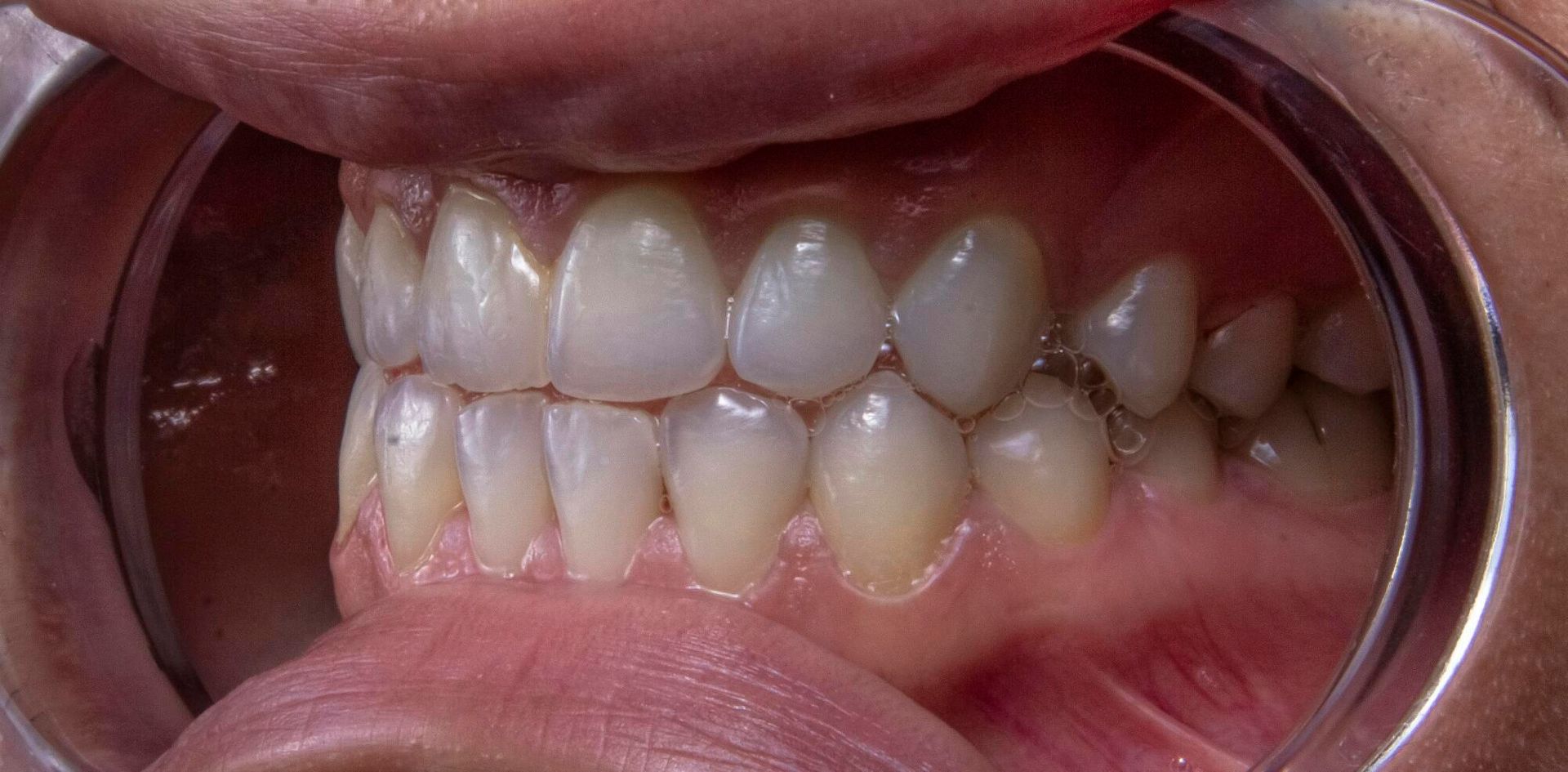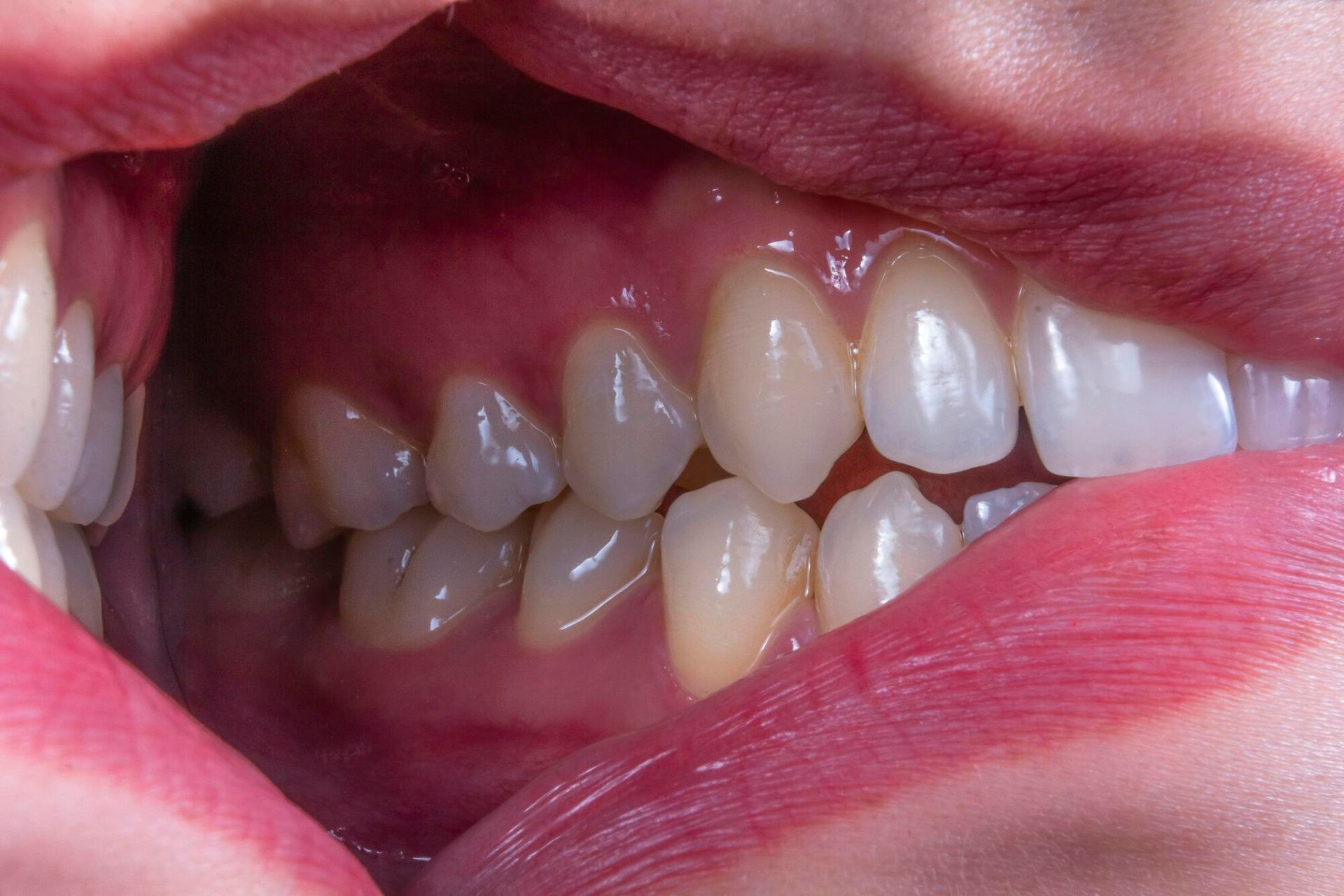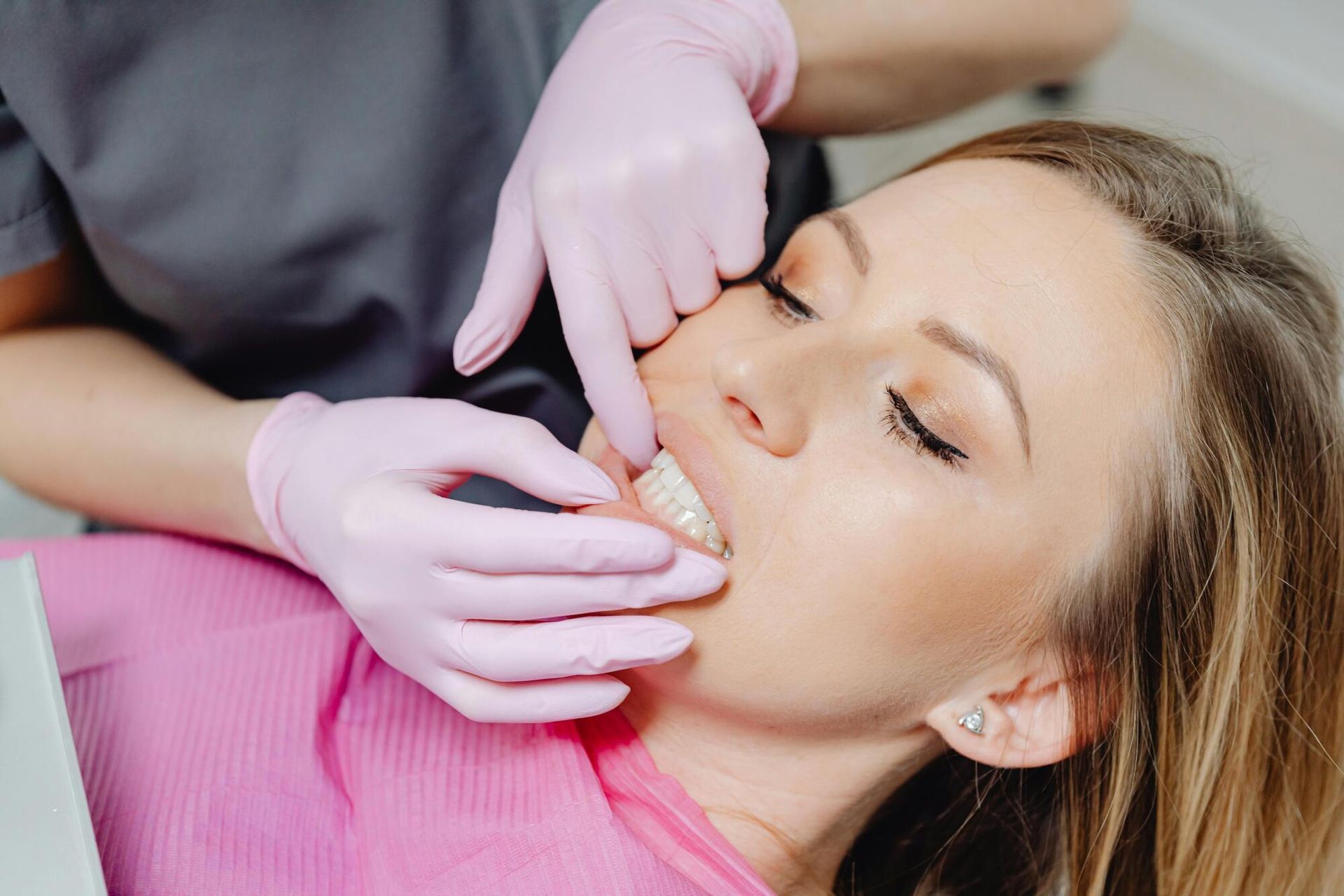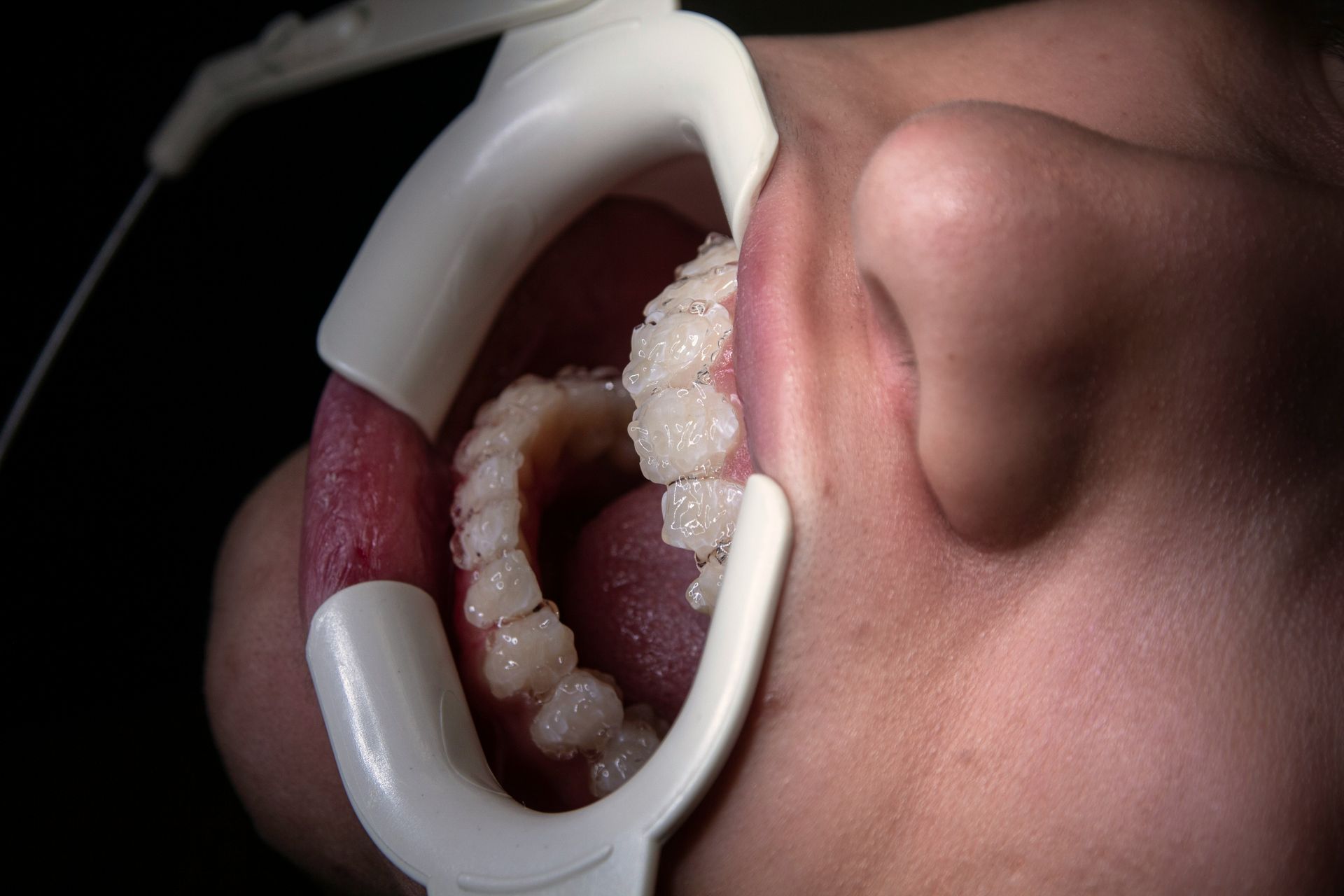Health Risks Associated With Misaligned Teeth
It is estimated that around three in five people are unhappy with their smiles, according to a study by StudyFinds. Misaligned teeth do more than affect your smile. They can create lasting oral and physical problems that build quietly over time.
If you have been told you have crooked teeth, it is worth understanding how alignment influences more than just your appearance. In this guide, we will take a closer look at how it can impact your health and go over oral health improvement tips.
Increased Risk of Gum Infections
Crowded or twisted teeth can trap food particles, making brushing less effective. Plaque builds up along the gumline, feeding bacteria that trigger inflammation and infection. Over time, you can experience long-term tissue damage.
Without correction, the risk of gum disease from crooked teeth increases. Consistent oral care becomes harder, and your mouth pays the price.
Tooth Decay in Hard-To-Reach Areas
Misaligned teeth often leave tight spaces where toothbrushes and floss cannot reach. These hidden zones collect debris and bacteria, setting the stage for cavities.
If left untreated, you might eventually require fillings or root canals. People with alignment issues face a greater risk of tooth decay due to these problem areas. Watch for these signs of trouble between dental visits:
- Increased tooth sensitivity
- Visible discoloration or dark spots
- Bad breath that will not go away
- Pain when biting down
- Food gets stuck in the same place often
Early attention to these symptoms can prevent more substantial procedures later.
Uneven Pressure on the Jaw Joints
Alignment problems shift the balance of your bite, forcing your jaw muscles to work harder. Added strain can wear down the joints over time, causing severe pain. Jaw pain from misaligned teeth often worsens during meals or while speaking.
Clicking and stiffness may follow if the issue is not addressed. This level of discomfort can also interrupt sleep and daily routines.
Chronic Facial and Neck Pain
Crooked teeth affect more than your mouth. They change how your jaw, head, and neck move.
That leads to tightness in nearby muscles and tension that spreads through your face and shoulders. Many people do not realize that the headaches and neck aches they experience come from their teeth.
Addressing misalignment often eases strain in other areas. Look for these related symptoms if you suspect your bite is part of the problem:
- Pain near the temples or ears
- Sore jaw muscles in the morning
- Stiffness in the neck or shoulders
- Tension headaches that return often
- Difficulty opening your mouth fully
A healthier bite can relieve pressure far beyond your teeth.
Heightened Risk of Tooth Fractures
A misaligned bite causes certain teeth to take more force than others. These teeth wear down faster and become vulnerable to cracks and breaks.
The added stress increases the odds of sudden dental emergencies. Over time, repeated pressure can lead to permanent damage. Knowing the risk factors for tooth wear can help you catch the problem early.
Persistent Mouth Breathing Issues
People with crowded teeth often struggle to keep their lips sealed comfortably. It can lead to breathing through the mouth, especially during sleep. Mouth breathing dries out the tissues and weakens your body's first line of defense against germs.
It also contributes to bad breath and sore throats. You may notice these effects building up over time:
- Dry mouth when you wake up
- Frequent sore throats
- Snoring or disrupted sleep
- Chapped lips or cracked corners of the mouth
- Nasal congestion without a clear cause
Correcting your bite can enhance your breathing and sleep quality each night.
Headaches Triggered by Misalignment
Even slight shifts in alignment change how your muscles work. When jaw muscles overcompensate, the stress radiates upward.
Many people report frequent tension headaches before ever noticing their bite is off. Proper alignment often brings relief that medication alone cannot provide. A dental exam can help uncover this connection, and it is essential to schedule regular ones so you can catch issues before they evolve into something worse.
Difficulty Chewing and Digesting Food
Chewing becomes inconsistent when teeth do not align correctly. This leads to larger food pieces reaching your stomach, making digestion harder.
Some foods may feel impossible to eat at all. You might also feel discomfort or clicking with every bite. Daily frustrations often go overlooked, but they affect your body in many ways:
- Slower digestion after meals
- Stomach cramps or discomfort
- Difficulty chewing hard or chewy foods
- Jaw soreness during meals
- Avoiding certain foods entirely
Making changes early can help restore both comfort and confidence while reducing stress.
Speech Issues and Pronunciation Trouble
The shape and position of your teeth play a key role in how you form words. Misalignment can cause lisps or difficulty pronouncing certain sounds. This can impact both personal and professional conversations.
Many people find their speech improves noticeably after treatment. Your voice should reflect clarity, not struggle.
Higher Likelihood of Tooth Loss
Uneven pressure wears teeth down over time, weakening the bone and gum support. Gaps and crowding allow more bacteria to reach vulnerable spots. Once a tooth loosens, the risk of complete loss rises quickly.
Even one missing tooth affects your entire bite. These risks become more likely if warning signs go untreated:
- Shifting teeth or new gaps
- Bleeding gums during brushing
- Loose-feeling teeth
- Sensitivity around the roots
- Receding gums or exposed tooth surfaces
Protecting your alignment means safeguarding the foundation of your smile.
Finding the Right Dentist
Choosing the right dentist affects more than your teeth. It shapes your comfort and long-term health. The following sections will help you know what to look for and what to avoid.
Personality and Communication Style
You need a dentist who listens and respects your concerns. Feeling rushed or dismissed can turn even a basic checkup into a bad experience.
Look for someone who takes the time to walk you through options without pressure. A comfortable conversation goes a long way when you are sitting in that chair. The right personality builds trust, especially when treatments get more complex.
Office Cleanliness and Comfort
The appearance of a dental office tells you a lot about how it operates. Clean spaces and updated equipment reflect a professional image.
Pay attention to these things before you even meet the dentist. A well-maintained office demonstrates a commitment to hygiene and patient care. When visiting for the first time, take note of the following:
- Sanitary treatment areas
- Comfortable seating and lighting
- Modern dental tools and tech
- Clear signage and friendly staff
- Accessible restrooms and amenities
A clean and calming office environment helps reduce stress and makes returning to work easier.
Range of Services Offered
Dentists who offer more than cleanings can save you time and referrals. You do not want to bounce between providers for fillings or cosmetic work. Ask if the dentist offers services such as dental bonding or Invisalign.
A wide range of options means more tailored care in one place. That flexibility makes a difference as your needs change.
Experience With Anxiety or Special Needs
Not every dentist knows how to support individuals with dental phobia or medical conditions. If you deal with anxiety, find someone who can adjust their care.
The right team will offer patience and even sedation options when needed. Your prospective dentist should provide care that meets the needs of anxious patients, and you deserve a provider who makes you feel safe and respected.
Pricing Transparency and Payment Options
Nobody wants surprises when the bill comes. A trustworthy office will tell you what to expect before any procedure starts.
Look for written estimates and financing support. Watch for these signs of financial clarity:
- Upfront pricing details
- Clear insurance verification
- Flexible payment plans
- Discounts for certain groups
- Transparent answers to cost questions
Knowing your options ahead of time helps you plan care without hesitation.
Appointment Availability and Wait Times
Dentists with flexible hours make it easier to get the care you need. Long waits or limited scheduling can lead to skipped cleanings or delayed treatment.
If you are dealing with pain or a busy routine, you need a team that respects your time. They should allow patients to schedule online, helping reduce phone hold times and back-and-forth coordination. Reliable access makes every visit less stressful and more productive.
Reputation Within the Community
A dentist's reputation often tells you what their website does not. Ask friends or neighbors for recommendations and read patient reviews.
Feedback about the chairside manner and billing honesty can help you avoid bad experiences. Before committing, check for the following signs of a trusted provider:
- Consistent positive reviews across platforms
- Clear responses to patient concerns
- Recommendations from local families
- Long-term patients with repeat visits
- Clean disciplinary record with licensing boards
A solid reputation reflects how much they value their patients over time.
Bad, Crooked Teeth Can Lead to Health Issues
Addressing alignment issues promptly helps prevent more severe health problems later. Whether it is joint pain, decay, or gum infection, bad crooked teeth often start a chain reaction.
Smart Smile Dental has helped hundreds of patients across Orange County with everything from emergency care to complete smile makeovers. Over 95% of Invisalign cases finish within 9 to 15 months. You can get in touch with us today to learn more about how we can help.




